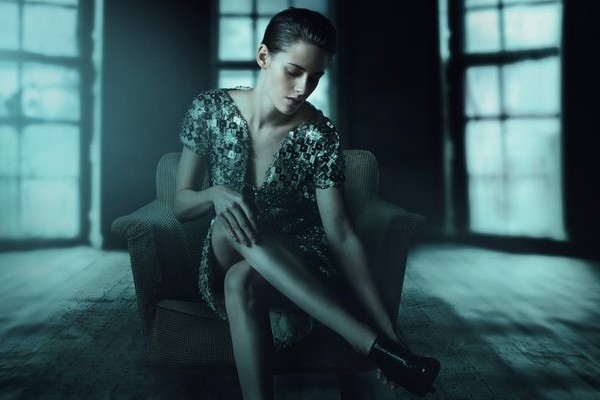
Soon after the death of her twin brother Lewis, personal shopper Maureen Cartwright (Kristen Stewart) travels to Paris and attempts to user her ability as a spiritual medium to communicate with him, a power that he also possessed. She later receives anonymous texts that develop into an intriguing mystery.
Personal Shopper is a film that makes you think long after it has ended, the ambiguous ending coupled with certain plot points resulting in debate among those that have viewed it. The film ends after Maureen’s boss Kyra (Nora von Waldstätten) has been murdered by her ex-boyfriend Ingo (Lars Eidinger) post-breakup. Ingo has been stalking and texting Maureen for weeks and they finally meet in a hotel room after Kyra’s murder. The scene is shot without the viewer witnessing their interaction; just Maureen entering the room, a fade to black, then the next showing something unseen leaving the room and the hotel, with Ingo following soon after. We then see Maureen meet up with her friend Lara (Sigrid Bouaziz) at a cafe. What happened in the room is ambiguous. Later, Lewis seems to finally be giving Maureen the signs she has been waiting for, dropping a glass at Lara’s and then in Oman when Maureen goes to meet her boyfriend Gary (Ty Olwin). But, when Maureen asks this spirit if it is Lewis or merely herself, it taps once for….herself.
This open-ended final scene has been hotly debated since the film’s release, with some believing that Maureen died at the hotel by Ingo’s hand and others believing that Maureen’s connection with spirits is driven by her own grief and suffering; the stronger they are, the stronger her connection. The latter interpretation may be bolstered by the fact that we first see what appears to be Lewis’ spirit making itself known after Lara’s boyfriend advises Maureen to let Lewis go.
Whatever your interpretation, closure and grief are clear themes in this film. Kristen Stewart give a good performance as a young woman understated in her grief for her brother, amidst all the other turmoil in her life. She struggles with knowing that he is ok wherever he has gone after death, something everyone will have to confront at some point in their lives. Perhaps that is one interpretation of the ending; the spirit saying that it’s her and not it is its way of saying that her freakout and obsession over finding Lewis and knowing his fate is a hangup all her own, and not something that is ultimately in question. In a film where the protagonist is left to wonder and piece together her own answers, it’s fitting that the audience must do the same.
Personal Shopper is a film that makes the viewer fully engage and think things through. It starts a little slow, picks up a little bit, and hits its stride toward the end of the third act. The acting is understated, there is no music, and Stewart is left to carry the film solo, but the questions it makes those watching ask themselves and its open-ended interpretation make it an interesting watch. The best films generate discussion long after they have ended and the many conclusions that can be drawn from this film elevate it over a lot of what’s out there.
Image: IFC Films

